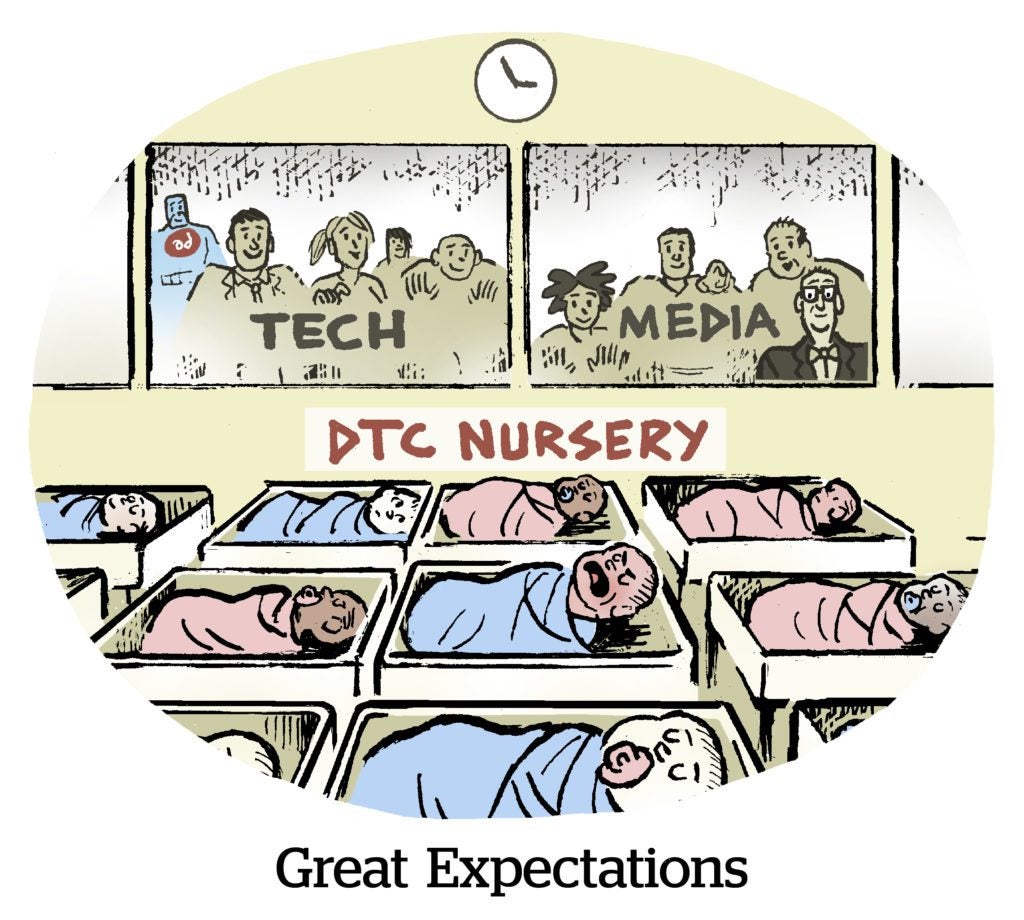Hey, readers! This is James Hercher, AdExchanger’s senior editor and your escort into the world of commerce media.
This week, we examine an interesting DTC marketing trend whereby online brand building and ecommerce advertising experts are testing their mettle by launching and operating brands of their own.
They’re eating their own dog food, so to speak.
“If you know so much …”
… why not launch your own brand?
Danavir Sarria, who runs a DTC and email marketing agency called SupplyDrop, did just that. He started a DTC candle company called Fantasy Candles a few weeks ago and has been documenting key business metrics, such as ad spend, revenue and profit, in a regularly updated Twitter thread and in a newsletter called The Upsell.
Sarria chose a rather rough moment to roll out a Shopify business built on search and social media ads. Upon launch, he was almost immediately blindsided by a major Facebook ad spend glitch, and when he temporarily pulled advertising, his ROI cratered.
But when something unfortunate happens, Sarria and other agency leaders/consultants/DTC brand operators like him can bring refreshing candor to the situation.
“The silver lining here is that I’m still surviving post-FB ad outage,” Sarria said in one update.
Hopefully, Sarria’s efforts offer some solace to other small merchants – although many of the affected companies that were hammered by the same glitch aren’t hands-on ad platform experts.
Performance-minded agency people can bring a whole new perspective to the operation of a brand. There’s more urgency to experiment with new tools and tactics, for example, and they have the knowledge and experience to understand whether those experiments drive real value.
One creative approach Sarria took was to use the three top-performing ads from the first week as the basis for their own ad set, with each one targeting a different audience. Two out of the three campaigns turned out to be duds, while sponsored user-generated content performed best.
In another aside, Sarria said he hadn’t appreciated how much of a challenge it would be to scale a product bundle. The only profitable way to sell his candles is in a bundle, because it’s too expensive to sell a single candle when factoring in shipping and ad costs.
 The Xoogler
The Xoogler
As a newly minted brand operator, Sarria is in good company.
Ben Kruger, a former Google senior ecommerce growth consultant (he was Google’s ambassador to the DTC industry), quit last month to start an ecommerce business – he also just started as CMO of Events Ticket Center, a ticket reseller and marketplace.
Kruger landed on selling microphones targeted at livestreamers and social influencers.
In his newsletter and blog, he documents how he settled on microphones (he bought the preexisting brand and business) and shares his process for evaluating vendors, spending on ads and monitoring profitability.
As with Sarria, who says he spends only a handful of hours per week on the candle business, Kruger emphasizes that this isn’t exactly rocket science. His approach is to let Google Search and Performance Max do the heavy lifting. (Keep in mind that Kruger’s motivation here is at least partly to prove to all the PMax and branded search haters he dealt with while inside Google how simple and easy it can be to delegate to automated tools.)
In one blog post just before leaving Google, for instance, Kruger led with the headline, “GA4 is sick, you’re just being lazy” – a reference to how much ecommerce marketers hate the new Google Analytics suite.
But Kruger does sometimes take off his rose-tinted glasses.
Since leaving the Googleverse, he’s able to flex his insider knowledge with an outside perspective.
“I feel lied to … GA4 is not using data-driven attribution across the board as advertised,” he opines in one tweet. This is hardly an exposé, but Kruger is demonstrating how companies that focus on users, sessions or events (those are all GA4 terms of art) can shape attribution in ways that subtly favor a first-touch, last-touch or conversion-based model.
But when a consultant owns their own site and brand, they can recommend testing tactics based on their own experience that are outside normal best practices.
Kruger, for example, “went against every drop shipping guru’s advice” by ordering stock to his home that he then packaged and reshipped. Although he could offer cheaper shipping with a drop-shipper, it would take 14 days to deliver, whereas he could sell product from his home within two to six days.
With the option to choose between the longer wait/lower price of drop-shipping and the “give it to me ASAP” approach at a higher price, the conversion rate improved by more than 80%. Half of Kruger’s sales came from the speedier, more profitable option.
So, here’s to eating your own dog food – and to taking a more honest, candid approach to thought leadership in ecommerce.














